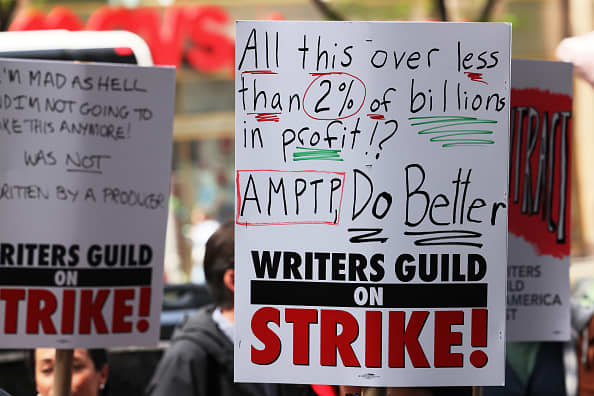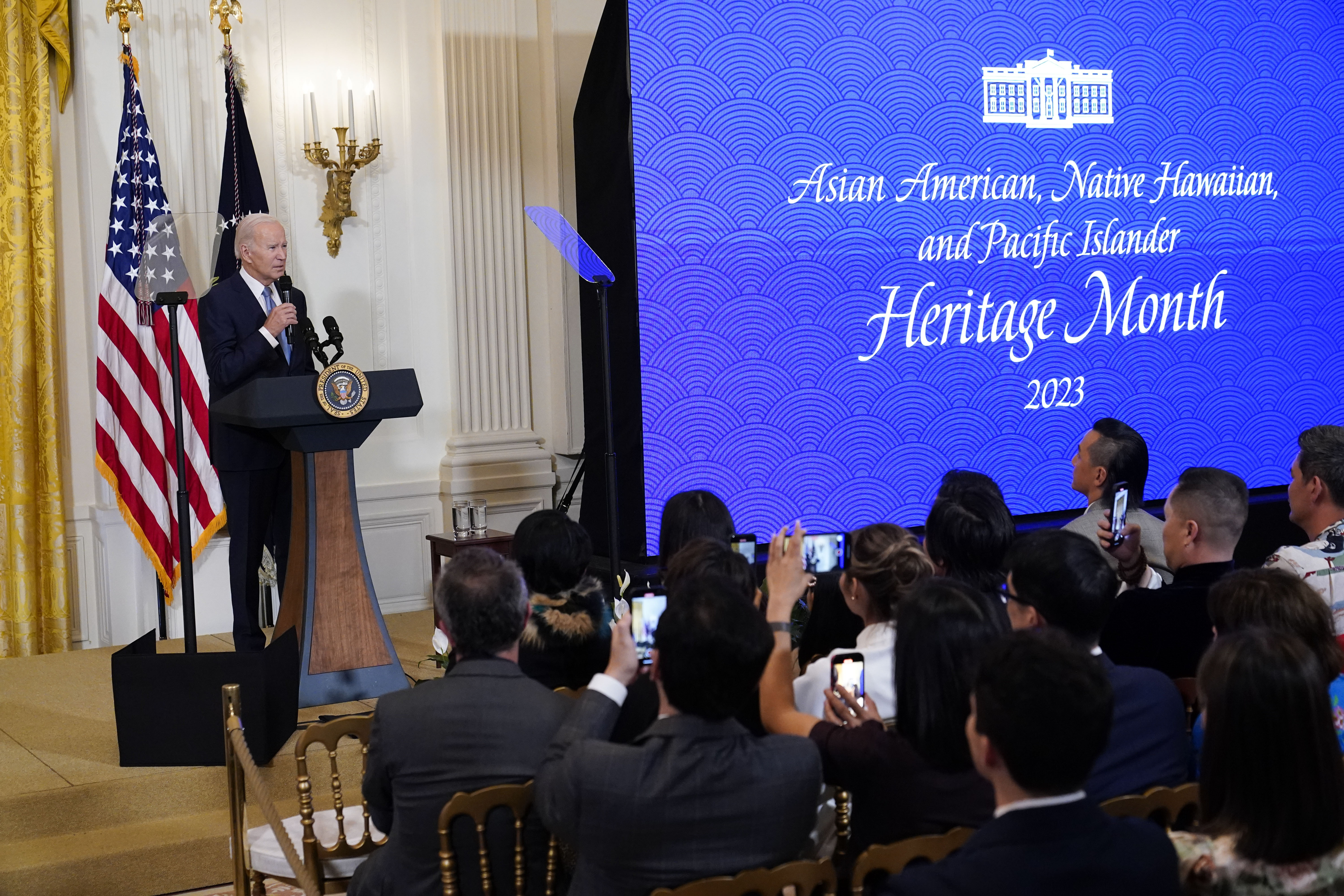
Actors represented by the Hollywood union SAG-AFTRA voted Monday evening to authorize a strike if they don't agree on a new contract with major studios, streamers and production companies by June 30.
The strike authorization was approved by an overwhelming margin — nearly 98% of the 65,000 members who cast votes.
The guild, which represents over 160,000 screen actors, broadcast journalists, announcers, hosts and stunt performers, begins its negotiations with the Alliance of Motion Picture and Television Producers on Wednesday, over a month after the Writers Guild of America began striking over its own dispute with AMPTP. If the actors union ultimately moves forward with the strike, it would be limited to television and film productions; news and broadcast work would not be directly affected.
Get Tri-state area news delivered to your inbox.> Sign up for NBC New York's News Headlines newsletter.
At stake is increased base compensation, which actors say has been undercut by inflation and the streaming ecosystem, the threat of unregulated use of artificial intelligence, benefit plans and the burden of “self-taped auditions” — the cost of which used to be the responsibility of casting and production.
“We are approaching these negotiations with the goal of achieving a new agreement that is beneficial to SAG-AFTRA members and the industry overall,” the AMPTP said in a statement Monday.
The strike authorization vote, a tool at the bargaining table, comes at a pivotal moment for the industry as 11,500 writers enter their sixth week of striking and the directors guild reviews a recently reached tentative agreement with studios on issues like wages, streaming residuals, and artificial intelligence. Should the actors strike, the industry already hobbled by the writers strike would come to a near-standstill, from production to promoting completed projects.
The WGA, DGA and SAG-AFTRA have shown solidarity with one another since the writers began walking the picket lines on May 2. Many in Hollywood worried about the very real possibility that all three guilds would strike at the same time, as both the directors and the actors contracts were soon due to expire as well.
That scenario changed Sunday night when the directors guild, which represents 19,000 film, television and commercial directors, announced that they had reached a “truly historic” tentative agreement with studios. The terms, which have not been disclosed in detail to the press or the other guilds, will be presented to the DGA board on Tuesday for approval and then to the membership for ratification.
Representatives for both the writers guild and the actors guild congratulated the directors group for reaching a tentative deal, though neither commented on specific points of the DGA terms. The WGA also said that its bargaining positions remain the same.
The DGA deal did not sit well with some individual WGA members, some of whom remembered when the directors negotiated their own contract while the writers were striking in 2007-2008. That deal 15 years ago, some felt, set precedent that forced the writers to fall in line with the terms agreed to by the DGA and end the strike.
“Zero surprise. The AMPTP continues to use their tired old playbook. And the DGA sadly continues to toe the line, knowing that they can draft off of the WGA’s resolve to strike for a truly historic deal. Disappointing, but not surprising,” veteran television writer Steven DeKnight, who also wrote and directed “Pacific Rim: Uprising,” tweeted.
Seemingly anticipating a repeat, the WGA negotiating committee last week released a letter cautioning that the studios would once again pursue a “divide and conquer” strategy, pitting the guilds against one another.
“Our position is clear: to resolve the strike, the companies will have to negotiate with the WGA on our full agenda,” the WGA letter had said. “We will continue to march until the companies negotiate fairly with us.”
While the unions have appeared more united this time, their aims are also different in many arenas. For the directors, securing international streaming residuals that account for subscriber growth was a key component, as were wages, safety (like banning live ammunition on set), diversity and inclusion and the addition of Juneteenth as a paid holiday.
The WGA agenda includes increased pay, better residuals and minimum staffing requirements. One key area of overlap between all is artificial intelligence. The DGA said they’d reached a “groundbreaking agreement confirming that AI is not a person and that generative AI cannot replace the duties performed by members.”
Duncan Crabtree-Ireland, the chief negotiator for SAG-AFTRA, maintains the needs of the guild's actor members are unique. Hollywood actors haven't gone on strike against AMPTP since 1980, which saw a 95-day strike over terms for paid television and VHS tapes.
“Our bargaining strategy has never relied upon nor been dependent on the outcome or status of any other union’s negotiations, nor do we subscribe to the philosophy that the terms of deals made with other unions bind us,” Crabtree-Ireland said Sunday.
On Monday, he added that the vote was a "clear statement that it’s time for an evolution in this contract.”



